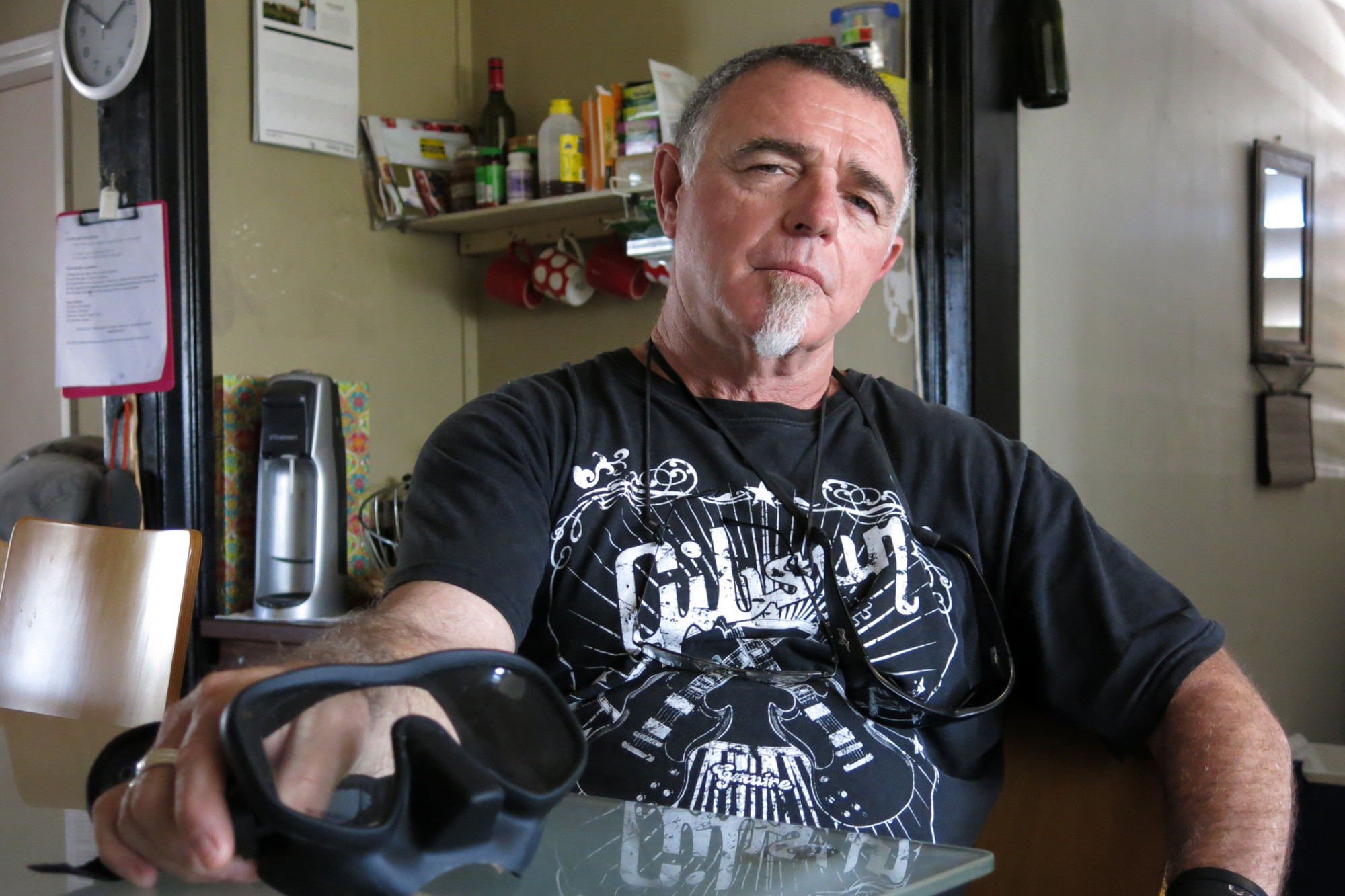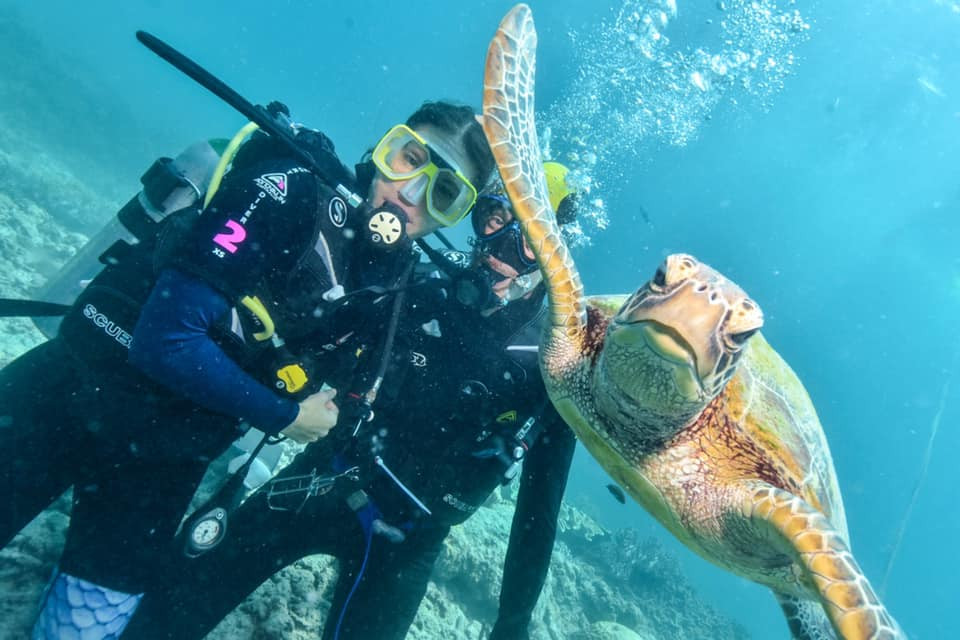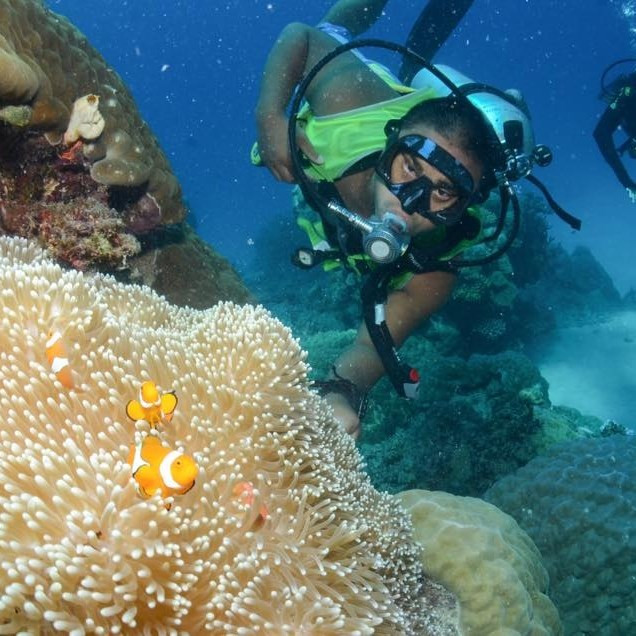General News
26 February, 2021
Fish out of water
HUNDREDS of tourism industry workers are set to lose their jobs when JobKeeper comes to an end on March 28 and the shedding of staff has already begun.

Ty McCormack, 59, has worked as a full-time dive instructor for more than 20 years, and said he was “gutted” when he received his redundancy notice from a major tour operator last week after dedicating 12 years of his life to the company.
He said the company had been operating at less than half capacity and relying on JobKeeper to keep staff employed since COVID-19 border closures began, as it previously derived 70 per cent of its income from international tourists.
The Federal Government has confirmed JobKeeper will come to an end on March 28 despite pleas from the Far North Tourism Industry for an extension for businesses that rely heavily on international tourists.
The SSI Dive Control Specialist and PADI Dive Instructor said he had worked for more than half of the dive companies in Cairns and never had any trouble finding full time employment ever since he first did his dive professional training in 2000.
“I love what I do, and I envisioned myself working as a diver until my retirement, so all of this is a bit of a kick in the guts,” said Mr McCormack.
“I had no intention of doing anything else. I’m still fit enough to do the job, still passionate enough to do the job, still in love with the job.
“I don’t blame my employer, they did what they have to do to stay in operation, which unfortunately meant they had to cull dozens of workers, including some who have been working there for decades.
“There is a high degree of professionalism in what we do. The tourism industry is a specialised industry. Not everyone is cut out to deal with people.”
Mr McCormack said he hoped to get more work in or around the ocean, or that his employer might take him back when international borders re-open, which isn’t expected until 2022.
“If there’s a possibility to do some upskilling, with funding, I’d be very interested in that. But it wouldn’t be wise to do manual labour such as farm work at my age.”

Workers double down as doubts abound
Some of the region’s most experienced and skilled dive instructors, skippers and deckhands are resorting to fruit picking, working on grocery store checkouts, and the dole, as work in the reef tourism industry dries up.
One worker, Mel, took up a second job as a casual checkout assistant at a grocery store after her hours as a senior dive supervisor at a local dive company were slashed.
The company is now running only four boats out of eight, and only operates on half as many days as it used to.
She said nobody at her company had been told what would happen to them when JobKeeper ends in March, so she felt it was best to keep a backup plan in place.
Because of this, she is among many tourism workers who are now struggling to maintain a balance between two jobs.
“Realistically I want to be on the boat, but I can’t leave my second job because who knows what’s going to happen with the boats,” said Mel.
“Between the two jobs I work a lot of consecutive days now - my most was 35 days of work in a row.
“It’s not the company’s fault, but I wish we knew what was going to happen so we could plan.”
Fellow reef tourism worker Simon Uren also got a second job at an avocado and passionfruit farm in Atherton when the pandemic hit, along with three others from his major reef cruise company.
He now regularly drives all the way from his home in Cairns to work on the farm, and works weekends as a deckhand and coxswain on the boat.
“I’m originally from inner city Sydney so I had no idea about farm work previously. It’s minimum wage, but it’s fair,” he said.

Reskilling tourism workers for alternate careers
Workplace health and safety, call centres, caring and community services are some possible areas of employment for former tourism industry staff according to Sally Mlikota, director of recruitment agency CBC Staff Selection and president of the Cairns Chamber of Commerce.
“They’re going to have to dig deep and maybe change their direction,” she said.
“In terms of transferable skills, tourism workers are experienced at following safety rules. They’re also customer-service focused and they know how to communicate with people.
“They could potentially be ideal for a position in workplace health and safety, or in customer service, for example working in a call centre answering phones.
“One thing that is booming at the moment is community services. You could try doing a TAFE cert in community services, mental health, or aged care. Tourism workers are good with people – maybe they could try being a carer.
“Thanks to the Queensland Government, there are also hundreds of online short courses people can do to upskill, with most eligible free of charge, including courses in Xero, Sharepoint, Bookkeeping and Microsoft Office Software, through to Leadership skills and Managing Anxiety and Stress.
“If you’re unemployed you’ve got several hours a day, have a play with these things and upskill yourself and understand what else is out there beyond the tourism sector, which doesn’t cost too much in terms of training.”
Dive industry worker Samuel Forest, 29, was a dive instructor, deckhand and Master 5 qualified skipper for Frankland Islands Reef Cruises as well as a quad bike and horse-riding tour guide for Blazing Saddles prior to COVID-19.
He lost both jobs almost straight away when the pandemic started and has since picked up casual work in disability support for the National Disability Insurance Scheme (NDIS).
He said it was a good job and they were on the lookout for more staff, so he recommended it to other current and former tourism workers, but he said he hoped to return to tourism one day.
“I’ve been working in tourism my whole adult life. And I want to keep my sea time up or my Master 5 qualification might lapse,” he said.


